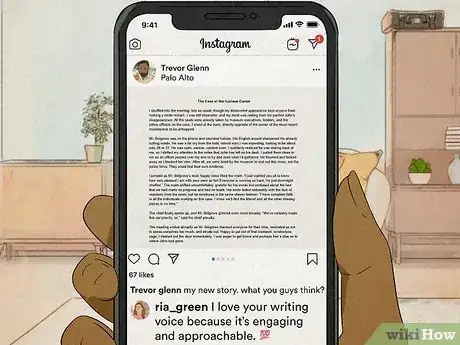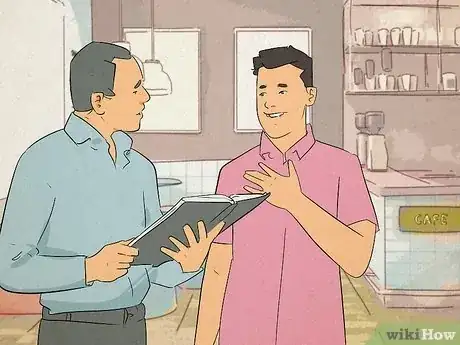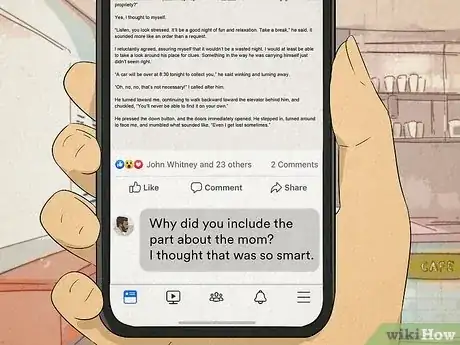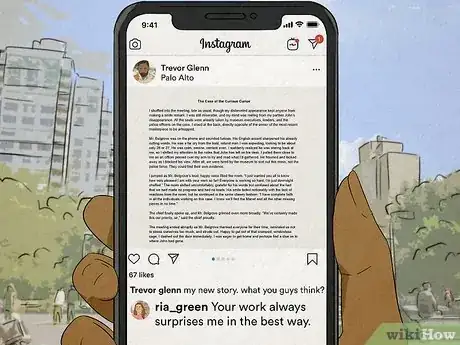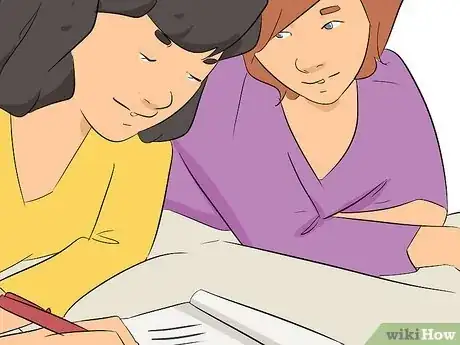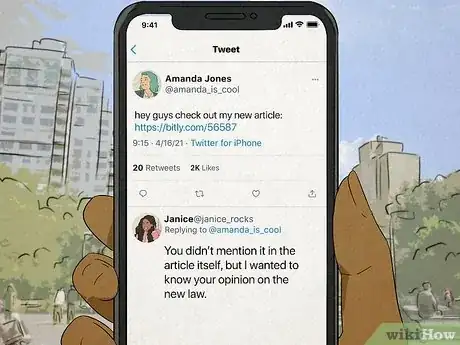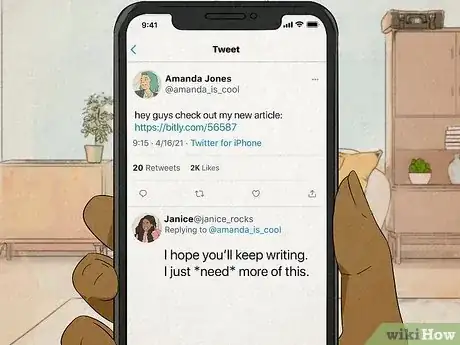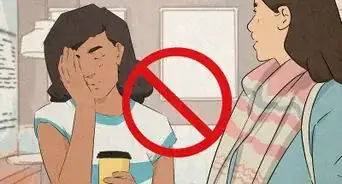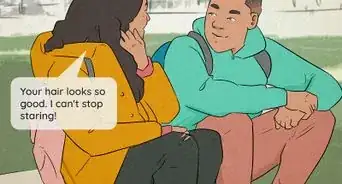This article was co-authored by Kim Chronister, PsyD and by wikiHow staff writer, Luke Smith, MFA. Dr. Kim Chronister is a Licensed Clinical Psychologist. She specializes in helping people struggling with substance abuse, relationship problems, eating disorders, and personality disorders. Dr. Chronister has contributed to and appeared on Access Hollywood, Investigation Discovery, and NBC News. She is the author of “Peak Mindset” and “FitMentality.” She holds an MA in Clinical Psychology and a Doctor of Psychology (PsyD) from Alliant International University.
There are 7 references cited in this article, which can be found at the bottom of the page.
This article has been viewed 26,747 times.
Writers often move and inspire us, but when it comes time to compliment their work, it can be a struggle to find the words. How do you tell a novelist that their book was exciting, or tell a journalist how important you think their writing is? We’ve put together a list of specific advice and helpful examples on how to let a writer know how much you appreciate their work, plus example compliments that will work on any writer—from your fiction-writing friend to your especially eloquent coworker.
Things You Should Know
- Be specific about what you like about a writer’s work, pinpointing particular details or parts you enjoyed.
- Use “because” statements like “I enjoyed this because…” to provide a deeper and more thoughtful compliment.
- Express your desire to read more of the writer’s work or to support their work in any way you can.
- Ask the writer about their process, thoughts, and inspiration to give them an opportunity to talk about their own work.
Steps
Warnings
- Respect a writer’s boundaries if they say they’re not comfortable talking about their writing or certain aspects of it.⧼thumbs_response⧽
- Avoid offering unsolicited critiques or suggestions about a writer’s work.⧼thumbs_response⧽
- Avoid being too verbose or long-winded when offering compliments. Keep commendations short and concise.⧼thumbs_response⧽
- Avoid being overly familiar when talking to a writer about their work. You can never tell how much of their writing reflects themselves, and how much is invented.⧼thumbs_response⧽
References
- ↑ https://writingtipsoasis.com/how-to-peer-edit-an-essay/
- ↑ https://wac.colostate.edu/docs/books/writingspaces3/depeter.pdf
- ↑ https://sg.indeed.com/career-advice/career-development/how-to-praise-someone-professionally
- ↑ https://www.inc.com/suzanne-lucas/10-things-to-say-instead-of-youre-so-talented.html
- ↑ https://twowritingteachers.org/2017/11/27/strongcompliments/
- ↑ https://www.thecut.com/2015/09/ask-polly-should-i-just-give-up-on-my-writing.html
- ↑ https://www.artnews.com/art-news/news/how-to-talk-to-an-artist-120/
- ↑ https://twowritingteachers.org/2017/11/27/strongcompliments/
- ↑ https://writingtipsoasis.com/how-to-peer-edit-an-essay/

